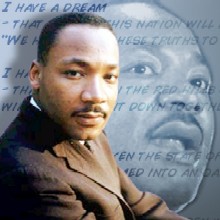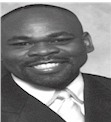 Martin Luther King the Baptist Preacher
Martin Luther King the Baptist Preacher
What is almost incomprehensible is the fact that many of the people who valorize King the most each year utterly despise his religious faith. To say the least, this means that almost anything such people may say about King is just about guaranteed to misrepresent his actual views and values.
Martin Luther King was a Baptist. He never made the least apology for his profession and beliefs and , on the contrary, made it clear to everyone that he strongly identified with his denomination and the faith it professed. To be sure the National Baptist Convention is an essentially African-American denomination, but in terms of beliefs and values there is almost no practical difference between the NBC and the SBC -the (mostly Caucasian) Southern Baptist Convention.
Inn other words, many of the same people champion King and at the
same time vilify the SBC, indeed, it is common enough to hear these
people comparing Southern Baptists to Fascists and other crazies.
Doing so, however, is to vilify Martin Luther King's most cherished
values.and to unjustifiably smear his faith.
Not that criticisms of Baptists -and others- may not be justified.
Some Baptists are narrow minded. Some Baptists are patriarchal and
out of touch with all sorts of new truths derived from science. But other
Baptists are anything but narrow minded and they may not be patriarchal
at all, nor be opposed to the discoveries of the sciences. It all depends
Yet the critics of Baptist faith tend to be as narrow minded , themselves, as any Baptist ever gets, albeit about different things. In any case, the point to make is that condemnation of Baptist views is condemnation of the views of Martin Luther King at the same time.
In other words, MLK Day in January must become something very
different than it has been so far. To try and make the holiday serve values
and interests which are nearly the opposite of what King stood for cannot
be excused or tolerated by anyone with a conscience.
But in case anyone has doubts about King's Baptist identification, the
facts are available for examination to all who may want verification.
King became the pastor of Dexter Avenue Baptist Church in Montgomery, Alabama, and had not been on the job very long when Rosa Parks took a seat in the "whites only" section of a city bus and, in so doing, ignited the modern Civil Rights movement. King took the lead in this cause from the very beginning -as a young man in his later 20s- and was called upon to do so precisely because of his leadership role in the black community as a preacher. The clergy has traditionally provided leaders to African-Americans for the simple reason that pastors are among the most well educated in this population and also because social leader- ship opportunities have often been unavailable in other professional fields. This is far less true today than 50 years ago, but it was decidedly true in King's time.
At any rate, there is no question whatsoever that King was a Baptist
preacher. He always was exactly that, at all phases of his adult life.
He never ceased to be a Baptist preacher. More than anything else,
this is what best explains the man and the remarkable things he did
while he lived.
An article from the Christianity Today website makes all of this clear,
found under the title, "CT Classic: Catching Up with a Dream."
For one thing, King was immersed in Baptist teachings from the time of his youth. His grandfather had been a Baptist preacher and so was his father, Martin Luther King, Sr. Young Martin regularly attended his father's church in Atlanta, Ebenezer Baptist. Although he went through various changes in outlook while he was a student in the North, especially at Crozer Theological Seminary, he nonetheless returned to his fundamentalist roots, not only as a pastor but in the couple of years before then. As we shall see, King's fundamentalism was unique and unlike that of many or most Baptists, but it was fundamentalist nonetheless. Which is to say that King clearly has more in common with people like Pat Robertson or Franklin Graham than he does with Ted Kennedy and certainly unlike William or Hillary Clinton.
"I am fundamentally a clergyman, a Baptist preacher," said King. There is no way to pretend that this is not true and no way to interpret his life as if something else was the case. And as the article concluded, there is no way to separate King's faith and his politics. King repeatedly mixed religion and politics, as a matter of fact. He did so working on the American political Left, however, which today's (sad excuse for the) Left forgets, or pretends was not true, all the while condemning the same thing when it is the political Right that fuses faith and politics.

No comments:
Post a Comment